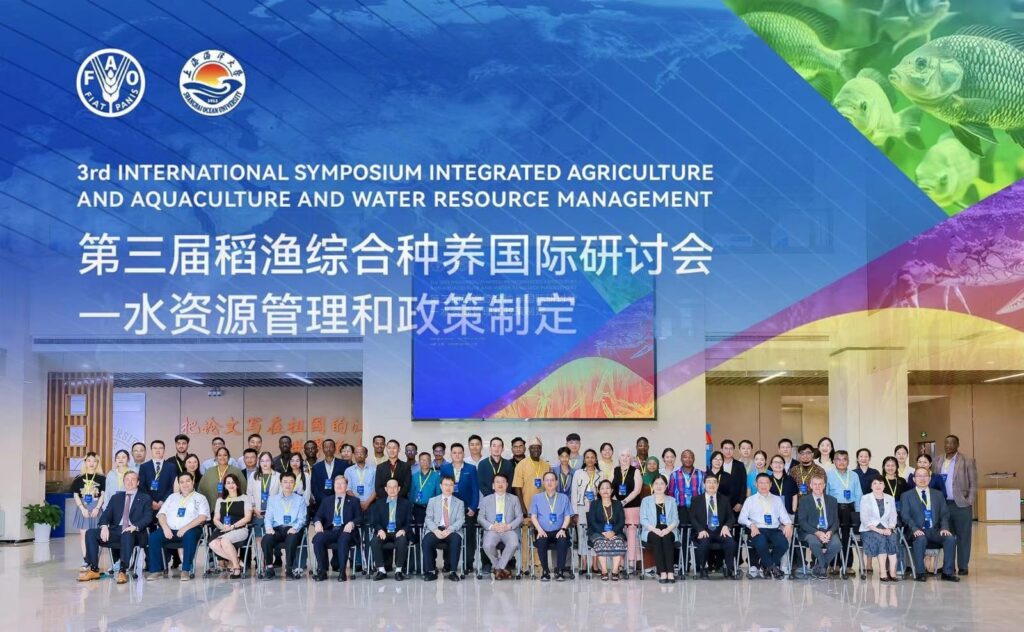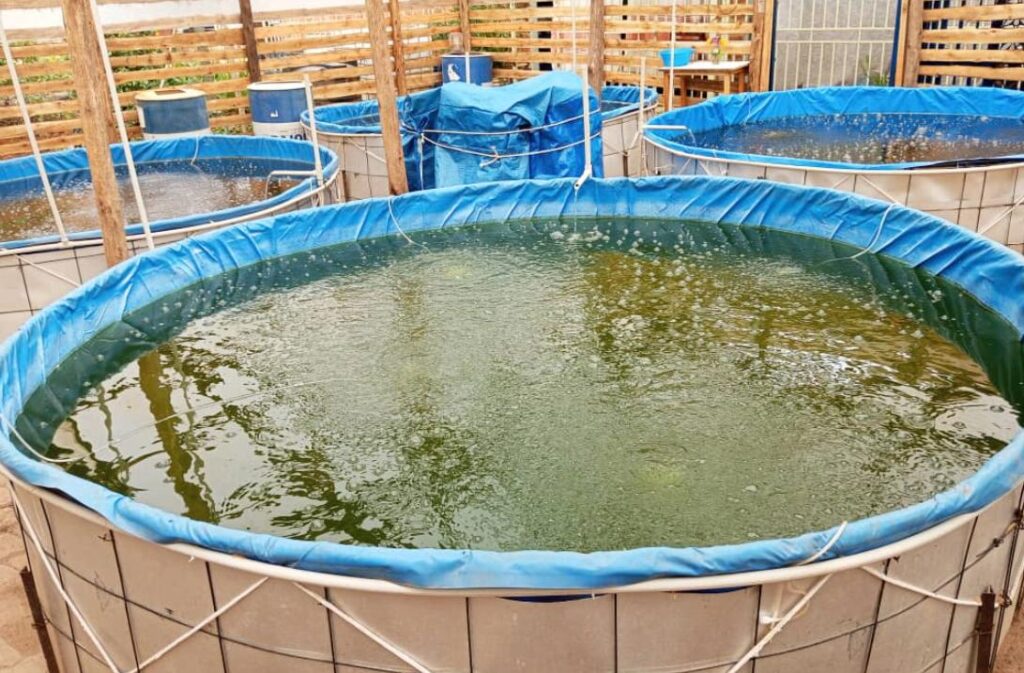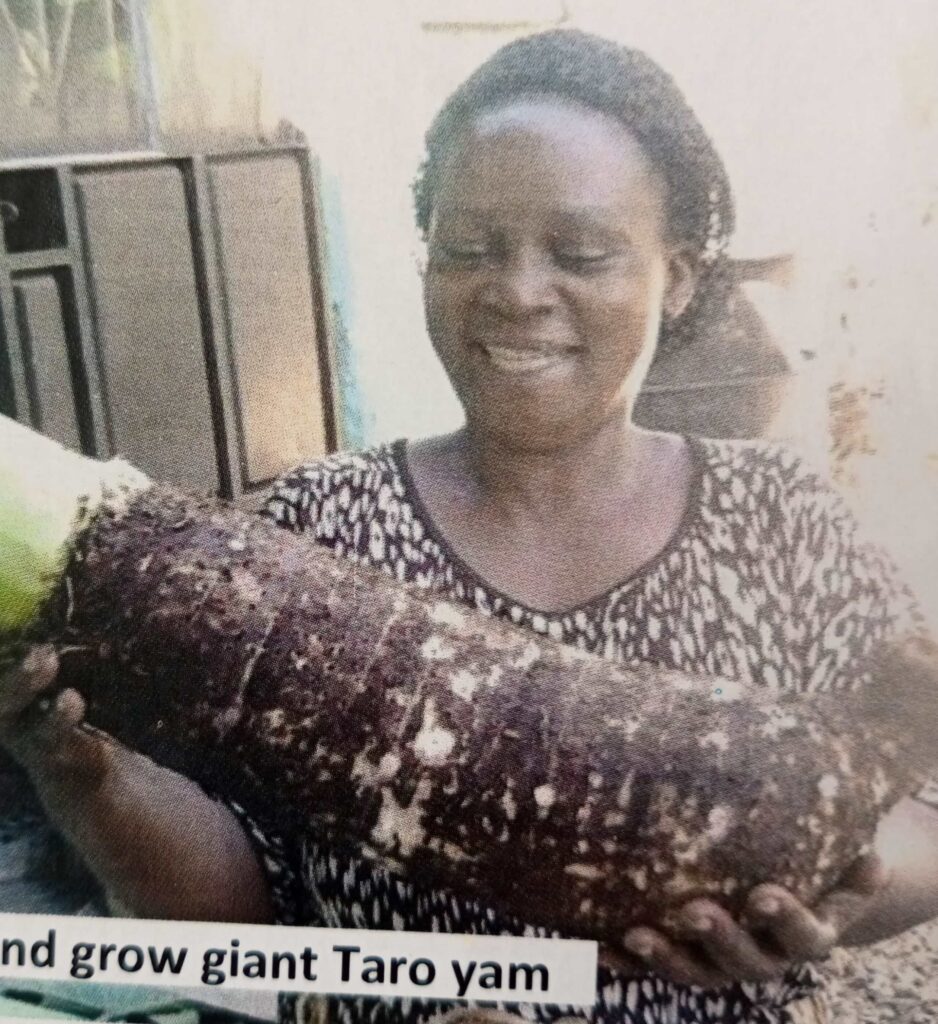My journey began in early 2003 when I did pond (but this is a story of another day). Then in 2005 with an online Friendly Aquaponics Course, followed by extensive travel abroad and hands-on practical experience, training countless individuals. I’ve been dedicated to the practice and teaching of aquaponics till 2016. I transferred the Indoor catfish hatchery to Nakabugo and scaled it up as a flow though.
Later in 2019, I enrolled in a renowned Biofloc Shrimp course. This comprehensive online course, the most advanced of the three offered (Shrimp, Tilapia, and Crab), provided me with in-depth knowledge across all aspects of commercial aquaculture.
While the course offered field training, my prior experience with Aquaponics gave me the confidence to invest in setting up my own IBC demonstration system.
This powerful combination of theoretical knowledge and practical experience empowered me to develop a cutting-edge RAS system specifically tailored for African conditions.

This led to an invitation to present my innovative solution for African food sovereignty Africa’s sustainable fish farms: RAS flocponics at the 3rd International Symposium on Integrated Agriculture and Aquaculture (IAA) and Water Resources Management held from 19-21 September 2024 at Shanghai Ocean University, Shanghai, China.

On return from China, i set up a proof of consept 6ton / year system at our Budo facility.
At the Symposium in Shanghai, I witnessed numerous presentations on the highly successful Asian Rice and Fish model, which is being adopted by several African countries. This sparked a profound realization: despite Africa’s incredible biodiversity, very few of our traditional food systems are truly climate-smart.
All along, I had been working on this very problem without fully recognizing its significance. I had successfully experimented with Yam and Fish, and even off-season Maize and Fish. Shortly before receiving the UN FAO invitation, I began exploring the potential of Potato and Fish within my decoupled aquaponics system.
When I shared this experiment on TikTok, the overwhelming response – with the highest number of likes going to the search for potatoes in the grow bed – confirmed that many people in Africa are eager to embrace climate-smart solutions based on local African Food. This experience solidified my belief that we need to develop sustainable, locally-adapted systems that leverage Africa’s rich biodiversity.
At the same time, I happen to have invented the very foundation of such a climate-smart system: my RAS FlocPonics. This system decouples aquaponics, allowing for the cultivation of a wide range of African food varieties, including potatoes, yams, bananas, maize, and more.
2025 is the year we bring this vision to fruition! Let’s join forces and put our heads together. The resounding TikTok response – a testament to the public’s desire for climate-smart solutions – cannot be ignored.
The African food market is a trillion-dollar industry. If we do not, the money we can hardly afford will go towards importing food. We cannot allow others to exploit this opportunity by importing food while we struggle with food insecurity. Let’s develop our own food sovereignty solutions, retain our culture and ensure a prosperous future for Africa for generations to come.

Hi, this is a comment.
To get started with moderating, editing, and deleting comments, please visit the Comments screen in the dashboard.
Commenter avatars come from Gravatar.